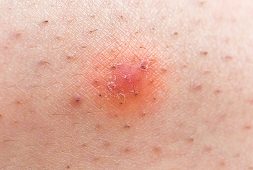
Eggs have received a bad reputation for raising blood cholesterol levels. Over the years, doctors have cautioned against consuming too many eggs due to concerns about their impact on heart health, however recent research have been showing mixed results.
While on study linked eating three to four eggs per week to a 6 percent increase in the risk of cardiovascular disease, other studies have concluded that consuming up to seven eggs a week is not associated with heart disease in healthy individuals.
A study to be presented at the American College of Cardiology’s Annual Scientific Sessions in Atlanta in April supports the claim that eggs, particularly fortified eggs from hens nutrient-enriched feed, many not be harmful.
Led by scientists at Duke University in Durham, North California, the modest-sized study found that over a four-month period, participants who consumed a dozen fortified eggs each week had the same blood cholesterol levels as those who at no more than two eggs of any kind per week.
Why the Emphasis on Fortified Eggs?
A study author and research fellow at the Duke Clinical Research Institute, Nina Nouhravesh, MD, says, “We wanted to add some solid evidence on the effects of fortified eggs, especially because nonfortified eggs have been a subject for investigation for many years.”
She pointed out that fortified eggs might be healthier than regular eggs due to their additional amounts of vitamins D, B, and E, omega fatty acids, and iodine, while containing less saturated fat.
Study Involved Individuals With Heart Disease or at Risk
Dr. Nouhravesh and her team conducted a study involving 140 adults aged 50 and older (with an average age of 66) who had experienced at least once cardiac event in the past, such as a heart attack, or had risk factors for cardiovascular disease, including high blood pressure, high cholesterol, increased body mass index (BMI), or diabetes. Half of the participants were female, and 27 percent were Black.
Over a four-month period, half of the subjects were instructed to consume 12 fortified eggs per week, while the other half were limited to consuming up to two eggs, whether fortified or not. Fortified eggs are sourced from hens fed special feed enriched with vitamins and minerals.
At the conclusion of the study, the researchers found that the differences in levels of HDL “good” cholesteroland LDL “bad” cholesterol between the two groups were not statistically significant.
Interestingly, participants in the fortified egg group actually exhibited slightly lower levels of HDL and LDL: 0.64 milligrams per deciliter (mg/dL) in HDL and 3.24 mg/dL in LDL.
Are Eggs Bad for the Heart or Not? Patients Want to Know
“I treat a lot of patients for cholesterol, so the egg issue comes up frequently. I think what’s interesting about this study is that it shows eating fortified eggs doesn’t really adversely affect your cholesterol,” says Parveen Garg, MD, a cardiologist with Keck Medicine of USC in Los Angeles.
Dr. Garg, who was not part of this study, acknowledges that eggs are rich in dietary cholesterol, with one large egg containing approximately 200 mg, predominantly found in the yolk.
Dr. Garg emphasizes that dietary cholesterol is different from blood cholesterol, explaining,
“There’s sufficient evidence, however, to question the whole idea that the more cholesterol you have in your diet, the more is going to show up in your blood levels.”
He points out that saturated fat is more likely to affect blood cholesterol, emphasizing that eggs have lower saturated fat content compared to foods such as red meat and dairy products.
Limitations of the Study and More Research Still Needed
Dr. Nouhravesh emphasizes that her research, being a pilot study, has several limitations. While participants provided some information regarding dietary intake, including daily calories, proteins, and saturated fat, specifics were lacking.
Additionally, the study did not consider how eggs were prepared; some subjects may have fried their eggs in butter, increasing saturated fat intake, while others may have boiled them.
Furthermore, the research did not account for the subjects’ exercise regiments or medications, both of which could be influencing factors.
Moreover, the study was funded by Eggland’s Best, a company that manufactures and sells fortified eggs. Whether the results of this trial apply to non-fortified eggs remains unknown.
She explains, “In the current trial we found a potential benefit [of fortified eggs] on cholesterol levels in patients who were older and in patients with diabetes, which we think is very exciting data which should be further investigated in larger trials.”



